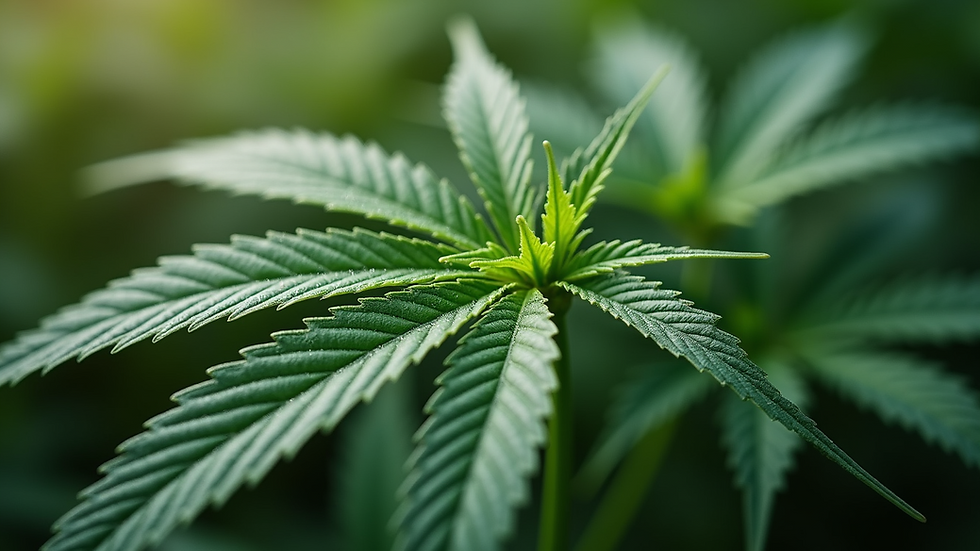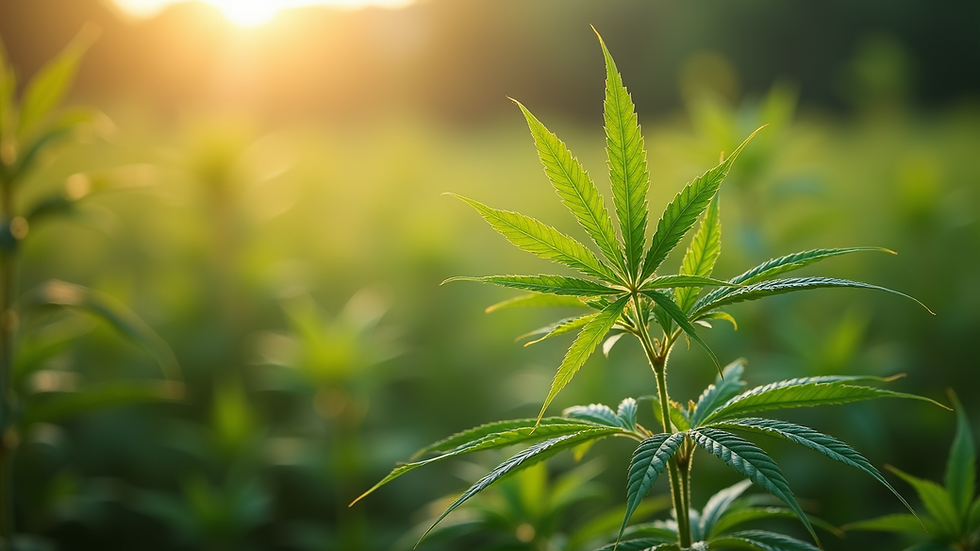Understanding the Basics of Hemp-Derived Products
- Andrew Mann
- Oct 27, 2025
- 4 min read
Hemp products have gained significant attention in recent years due to their versatility and potential benefits. Derived from the hemp plant, these products range from textiles and food to wellness items. Understanding the basics of hemp products can help you make informed decisions whether you are considering them for personal use or business purposes. This article will guide you through the essential aspects of hemp products, their uses, and what makes them unique.
What Are Hemp Products?
Hemp products are made from the fibers, seeds, and extracts of the hemp plant, a variety of the Cannabis sativa species. Unlike marijuana, hemp contains very low levels of THC, the psychoactive compound that causes a "high." This distinction makes hemp legal in many regions and suitable for a wide range of applications.
Hemp fibers are strong and durable, making them ideal for textiles, ropes, and paper. Hemp seeds are nutritious and used in food products like oils, protein powders, and snacks. Extracts from hemp, such as cannabidiol (CBD), are popular in wellness products for their potential health benefits.
Some common hemp products include:
Hemp clothing and accessories
Hemp seed oil and food supplements
CBD oils and tinctures
Hemp-based skincare products
Biodegradable plastics and construction materials

Exploring Different Types of Hemp Products
Hemp products can be broadly categorized based on the part of the plant used and their intended purpose. Understanding these categories helps in selecting the right product for your needs.
Hemp Fiber Products
Hemp fibers are extracted from the stalks of the plant. These fibers are known for their strength and durability. They are used in:
Clothing and footwear
Ropes and nets
Paper and packaging materials
Composite materials for automotive and construction industries
Hemp fiber products are eco-friendly alternatives to synthetic materials, offering sustainability benefits.
Hemp Seed Products
Hemp seeds are highly nutritious, containing essential fatty acids, proteins, and minerals. Products made from hemp seeds include:
Hemp seed oil for cooking and skincare
Protein powders for fitness and nutrition
Snacks like hemp seed bars and granola
These products are valued for their health benefits and are often incorporated into balanced diets.
Hemp Extract Products
Extracts from hemp, especially cannabidiol (CBD), have become popular for their potential therapeutic effects. These products include:
CBD oils and tinctures
Capsules and edibles
Topical creams and balms
It is important to note that hemp extracts contain minimal THC, making them non-intoxicating. However, some products may contain trace amounts of hemp-based thc, which is regulated depending on the region.

What is hemp THC good for?
Hemp THC, or tetrahydrocannabinol derived from hemp, is present in very low concentrations compared to marijuana. Despite its low levels, hemp THC can offer several potential benefits without causing psychoactive effects.
Potential Benefits of Hemp THC
Pain Relief: Some users report that hemp THC helps alleviate chronic pain and inflammation.
Anxiety Reduction: It may contribute to calming effects and reduce anxiety symptoms.
Sleep Improvement: Hemp THC can assist in improving sleep quality for some individuals.
Anti-Inflammatory Properties: It may help reduce inflammation in various conditions.
Usage Considerations
Hemp THC is often combined with other cannabinoids like CBD to enhance therapeutic effects through the "entourage effect." However, it is essential to use products from reputable sources to ensure safety and compliance with legal limits.
Before using hemp THC products, consult with a healthcare professional, especially if you have underlying health conditions or are taking medications.
How to Choose Quality Hemp Products
With the growing market for hemp products, quality can vary significantly. Here are some tips to help you select high-quality hemp products:
Check for Third-Party Testing
Reliable products should have lab results verifying cannabinoid content and absence of contaminants.
Understand the Source
Look for hemp grown in regions with strict agricultural standards to ensure purity.
Read Product Labels Carefully
Pay attention to ingredient lists, THC content, and recommended usage.
Consider the Extraction Method
CO2 extraction is a preferred method for hemp extracts as it preserves purity and potency.
Look for Transparent Brands
Brands that provide detailed information about sourcing and manufacturing are more trustworthy.
Start with Low Dosage
When trying hemp extracts or hemp-based thc products, begin with a low dose to assess your body's response.
Practical Uses of Hemp Products in Daily Life
Hemp products can be integrated into everyday routines in various ways. Here are some practical examples:
Clothing: Choose hemp fabric for durable, breathable, and eco-friendly apparel.
Nutrition: Add hemp seeds or hemp protein powder to smoothies, salads, or baked goods.
Skincare: Use hemp seed oil or CBD-infused creams to nourish and soothe the skin.
Wellness: Incorporate hemp extracts or tinctures into your supplement regimen for potential health benefits.
Home and Garden: Use hemp-based biodegradable products to reduce environmental impact.
By incorporating hemp products thoughtfully, you can enjoy their benefits while supporting sustainable practices.
Future Trends in Hemp Products
The hemp industry is evolving rapidly, with innovations expanding the range of products and applications. Some emerging trends include:
Hemp in Food and Beverages: More edible products infused with hemp extracts are entering the market.
Sustainable Packaging: Hemp-based biodegradable packaging is gaining popularity as an eco-friendly alternative.
Advanced Extraction Techniques: New methods aim to improve the purity and potency of hemp extracts.
Hemp in Personal Care: Increased use of hemp ingredients in cosmetics and hair care products.
Legal Developments: Changes in regulations may open new markets and product opportunities.
Staying informed about these trends can help consumers and businesses make the most of hemp products.
Embracing Hemp Products Responsibly
Hemp products offer a promising combination of sustainability, nutrition, and wellness benefits. Whether you are exploring hemp textiles, nutritious seeds, or hemp extracts, understanding the basics is crucial for making informed choices.
Remember to verify product quality, understand legal considerations, and consult professionals when necessary. By embracing hemp products responsibly, you contribute to a healthier lifestyle and a more sustainable future.



Comments